LGBTQ

Calvary Baptist Church, a progressive Baptist landmark in the heart of downtown Washington, has named a gay couple as co-pastors.
Sally Sarratt and Maria Swearingen were presented to the congregation during worship services on Jan. 8 and will begin their new jobs on Feb. 26.
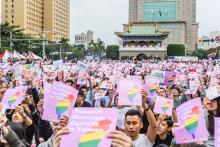
I want to err on the side of love and inclusion over doctrinal borders. I want to stand with the marginalized against the status quo. I want to be an ally because gay rights are human rights.

Let us not forget the impact that D.W. Griffith’s The Birth of a Nation had on America when it was released in 1915. An adaptation of the novel The Clansman: A Historical Romance of the Ku Klux Klan, there’s little doubt in my mind that the film’s racist depictions of African Americans and affirming depictions of Klansmen formed and hardened the discriminatory beliefs of many white people in the U.S., making them further believe that black people were undeserving of fairness, respect, and freedom. The Birth of a Nation is a prime example of why we need new stories, told from the perspective of identities that are generally ignored and denigrated.
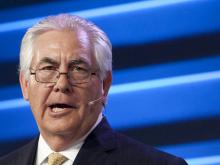
Donald Trump’s pick for secretary of state, ExxonMobil CEO Rex Tillerson, has come under fire for his friendship with Russian president Vladimir Putin – who is suspected of trying to tip the election to Trump – his lack of diplomatic experience, and the fact that he is a corporate bigwig who champions fossil fuels, even as the threat of global warming grows.
But Tillerson, whose nomination was announced on Dec. 13, may also face criticism from an unexpected quarter – social conservatives whose support was critical to Trump’s unexpected election last month.
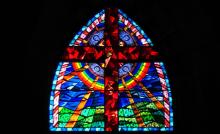
“As a black lesbian growing up in the South, being in a room filled with Christians excited and ready to engage with the powers that be at all levels of government is something I could only have dreamed would exist,” Victoria Kirby York, National Campaigns Director for the National LGBTQ Task Force, said.
“We must love our neighbor as ourself. And it is radical, and it is broad, and it is all-encompassing.”
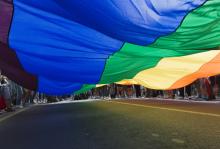
It’s the middle of Advent. As a pastor, that’s like saying it’s college basketball’s March Madness (go Buckeyes, by the way). Our church in Portland, Ore., is busy prepping our Christmas Eve worship service and organizing our Christmas Day homeless service project — so why am I in Washington, D.C., to talk about LGBTQ?
Because my faith compels me.
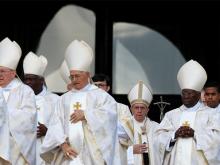
“Pope Francis has a lot of explaining to do by approving the newest Vatican instruction,” said Francis DeBernardo, executive director of New Ways Ministry, which campaigns for LGBT rights in the church.
“Francis’ famous ‘Who am I to judge?’ statement in 2013 was made in response to a question about gay men in the priesthood,” DeBernardo said. “That response indicated very plainly that he did not have a problem with a gay priest’s sexual orientation.
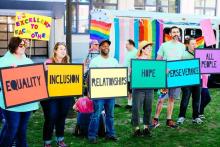
A new short documentary, "What Happens When an Evangelical Church Welcomes LGBTQ Members," features Rev. Adam Phillips, a pastor in Portland, Ore., whose church was kicked out of the Evangelical Covenant Church denomination in 2015 when Phillips revealed his full acceptance and support of the LGBTQ community.
"I hadn't really grown up in a faith community, and the Covenant Church was my faith family," he says. "I poured myself into it, and for a long season they poured themselves into me. I was one of the young emerging leaders...to be the future leaders of the church."
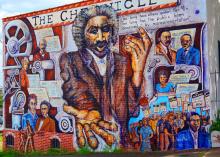
To say that HB2 has tarnished the state’s reputation would be a profound understatement. Those of us who have traveled out of the state (or the country) have become accustomed to some version of the same response when we introduce ourselves as native North Carolinians: “Oh, you’re from the bathroom state!”
No. We are not this.

There are some works of art that become landmarks in a person’s life. The person knows who they were before they encountered the art, but not who they are afterward, and among the pieces of themselves that have scattered to the floor they find new elements, new additions to their identity. Moonlight is undoubtedly one of my landmarks. It is my Washington Monument, my Statue of Liberty. It is all of that and more.
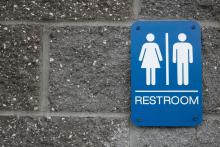
Next year, the Supreme Court will decide whether the federal government can require that public schools allow transgender students use bathrooms that align with their gender identity, according to the Washington Post. Again, the Supreme Court — short one justice, following Antonin Scalia's death in February and Congress' failure to confirm a new justice — finds itself at the center of a deeply divided social issue across our country.
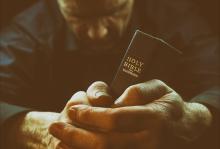
American evangelicals hold their theological and social views with deep conviction. We tend to add a layer of moral certitude to our positions. This can sometimes be helpful in the struggle for justice. But if every issue becomes the social or theological hill we choose to die on (or to kill on), then there are too many of us killing or dying on too many hills.
In part, this dogmatic tendency stems from the evangelical belief in absolute truth. In a world gone radically relativistic, this belief is a good thing. But when these convictions are challenged, it can feel like an assault against universal truth itself. We may fear that if one of our beliefs needs correction, then our presupposition about any truths that transcend time and culture are at risk.

Cultural uncertainty was the context in 2011, when Michael was first reported to his staff worker. Uncertainty of campus access and campus culture was the context when managers gathered to forge strategy for the next three years. And uncertainty of InterVarsity staff members’ own convictions and ability to answer students’ questions regarding their sexuality was the context when the Cabinet undertook the task of clarifying InterVarsity’s theological position on human sexuality.

Long said that in her own experience, transgender scientists are sometimes called by incorrect gender pronouns and or not allowed to formally change their names in scientific publications.
To Dr. Ramon Barthelemy, a science policy fellow at AAAS, LGBTQ physicist, and co-author of the study, not being able to change a professional publication record is especially problematic in the sciences.

As a nation, we expressed horror at the vile act of violence in Orlando, Fla., nearly coinciding with the one-year anniversary of more violence in Charleston, S.C. We mourn and debate stricter gun laws. Yet we ignore steps on the continuum to violence that has made such shootings almost routine.
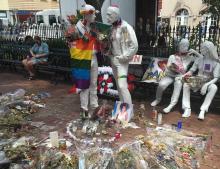

Tomorrow is the one-year anniversary of the Charleston massacre — a moment that shocked the nation into considering our collective complicity in a culture of white supremacy and its continuing violence against people of color. The anniversary stands in the wake of another massacre, this time in Orlando, this time targeting the LGBTQ community. For people of faith in particular, this is a moment to consider our complicity in a culture that otherizes a whole swath of our society. It’s appropriate that we apply some theology to these tragedies.
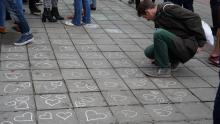
The LGBTQ community continues to fight to be recognizably human, and attacks like the one here in Orlando remind us why that fight is so important and still so necessary.
At the vigil downtown on June 13, an evangelical Hispanic preacher spoke. He said, “Not all evangelicals hate you. Some of us love you and we welcome you in our congregations!” And when he prayed, many prayed with him.
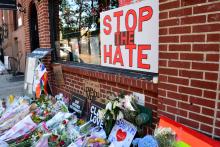
But while we cry, we must also gain our composure and not allow hate or cynicism to have the first, the loudest, or the last word.
We cannot use hate as the path through our pain into our tomorrow. Hate fuels hate: racial hate, homophobic hate, religious hate, class hate, and the rhetoric of hate that drives the terrorist and the mob. The culture of hate creates the actions of hate. It is and always has been a recipe for murder.
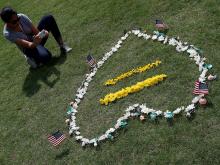
Christians responded quickly to the shooting rampage at an LGBT nightclub in Orlando, Fla.
The Billy Graham Evangelistic Association immediately sent trained chaplains with the Billy Graham Rapid Response Team to Orlando to offer emotional and spiritual care to victims of the attack early Sunday at Pulse. The Washington National Cathedral tolled its mourning bell 50 times Monday morning for the lives lost.